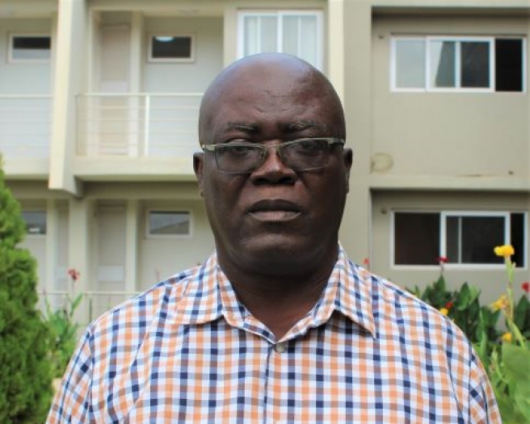A lecturer at the University of Media, Arts, and Communications (UniMAC), Mr. Osei Kojo Addow is suggesting the transformation of the Ghana Journalist Association (GJA), the umbrella body of Ghanaian journalists to a body that negotiate better remunerations for journalists in the country.
He stressed the transformation of GJA into a union will position it to demand better conditions of service for journalists.
According to him, this is the only way journalists in the country can get better remunerations stemming from the saturation at the media front.
He said over the years, Ghanaian journalists have sold themselves cheaply to media owners.
He added that some even get employed without appointment letters and letters of contract.
“It is the reason many journalists leave their former institutions and they are not able to demand their unpaid salaries because the letters for demanding payment are nowhere to be found,” he lamented.
The university lecturer called for the transformation of GJA into a union while discussing the findings of the report compiled by the Communications Department of the University of Ghana and the Media Foundation for West Africa (MFWA) that journalists are poorly paid in the country on the mid-day news on Accra 100.5 on Thursday, April 20, 2023.
A report compiled by the Communications Department of the University of Ghana and the Media Foundation for West Africa (MFWA) has observed that the salaries in the media are “woefully low”.
In addition, it said “Some employees work long months without pay”.
Also, the report revealed: “Most media employees have no healthcare support”.
It added that saturation, high cost of doing business, falling advertising budgets, the Covid pandemic and competition from digital media platforms, have all conspired to against the financial viability of media houses in Ghana.
“The data shows that as in many other African countries, COVID-19 had a devastating impact on the Ghanaian media, causing loss of revenue and job cuts at a time when media were already under stress from disruptions in the information ecosystem caused by the internet, social media and big tech companies such as Google, Facebook and Twitter”, the report said.
It found that “another source of dwindling advertising revenue peculiar, perhaps, to the local context – the fact that increasingly some organizations, especially churches that used to be heavy advertisers have established their own media channels and no longer need to advertise in other media.”
Below are some of the key findings:
FINANCIAL VIABILITY OF MEDIA
■ Generally, many media organizations in Ghana are not profitable; they only break even
The financial viability of many media organizations in Ghana is threatened.
■ Media in Ghana are creatively exploring new business models to stay alive, including digitization, conglomeration, events marketing and crowdfunding.
■ Digital technologies are fast-changing media financing models in Ghana.
■ Digital media are now a major source of income in the Ghanaian media.
■ One of the biggest threats to the financial health of the media is industry saturation.
WORKING CONDITIONS IN THE GHANAIAN MEDIA
■ Recruitment into the Ghanaian media is generally untransparent.
Many people working in the media do not have contracts.
■ There are no established structures for promotion in most media organisations; promotion is largely based on ‘whom you know’ and owners’/managers’ whims.
■ Salaries in the media are woefully low. Some employees work long months without pay.
■ Most media employees have no healthcare support
■ Most media organizations do not provide counselling support for employees who experience trauma in the line of work.
MEDIA OWNERSHIP AND REGULATION
■ In Ghana, media pluralism has not necessarily served the public interest, due mainly to concentration of media in a few hands.
■ Media ownership is shrouded in opacity.
■ There is a growing tendency towards media empire-building.
■ Political faces behind broadcast media ownership mean that partisan actors and governments can control public discourse.
■ The NCA has a laissez-faire attitude to questions about transparency in media ownership.
■ The current regime for broadcast regulation allows considerable power and influence to those whose conduct the media are supposed to check.
SAFETY OF JOURNALISTS
■ There is a growing sense of insecurity among journalists in Ghana
■ Violations of journalists’ safety are quite common in Ghana.
■ Male journalists are more at risk of attacks than females.
■ Investigative journalists are the most at risk of attacks
■ State actors, including political appointees and police are the worst perpetrators of attacks on
journalists.
■ Journalists feel that law enforcement agencies and the judiciary do little to protect their safety.
source: classfmonline.com

